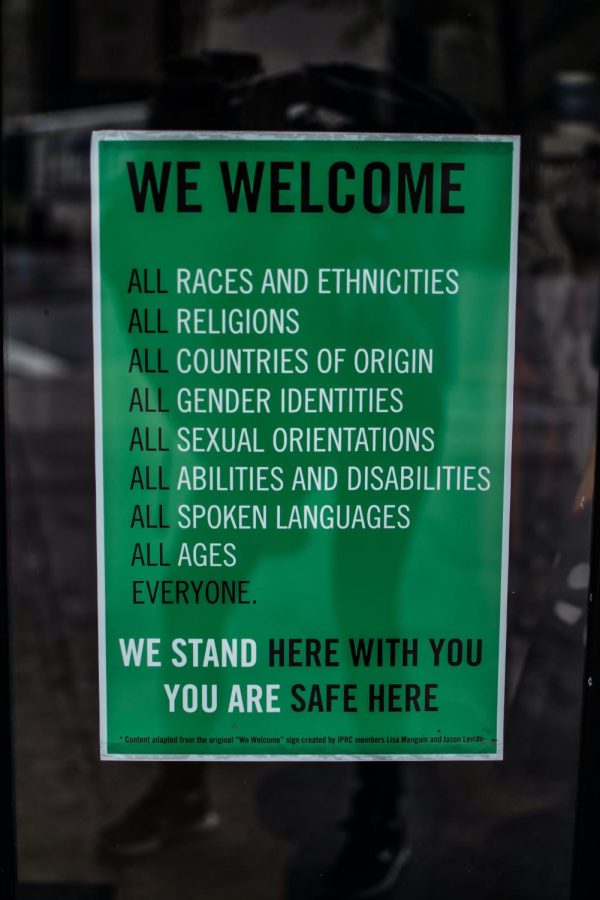Gender Inclusion Policy
January 31, 2022
Over the last several weeks, there have been ongoing conversations about UND’s proposed Gender Inclusion Policy. There have been continuing arguments on both sides about whether this policy should be implemented. After hearing feedback from various individuals and groups on and off campus, UND President Andy Armacost discontinued the work and implementation of this policy on January 21st.
What was the Gender Inclusion Policy? There were several objectives in enacting this policy. The policy aimed to implement a campus wide use of preferred pronouns, acceptance of expressed gender identity, and the rejection of any assumptions of a binary or biological-based gender. Furthermore, the policy hoped to “ensure every member of the UND community is free from discrimination based upon their gender identity and/or gender expression and has equal access to UND-sponsored programs and activities”.
What were the pro-arguments for the Gender Inclusion Policy? The Gender Inclusion Policy was to be a general document that pulled together laws, policies, and recommendations into one document to be used as one resource. This would make issues related to misgendering or non-acceptance of gender identity an easier way to address. Rights have been given to other groups (including race/ethnicity, religion, disability, sexuality, etc.) to feel safe, heard, and supported on campus; the University believed that members of the LGBTQ+ community deserve the same rights.
What were the concerns of the Gender Inclusion Policy? Although the development of the policy has since ceased, prior to this, several organizations and individuals were concerned with the implementation of this policy. The North Dakota Catholic Conference’s executive director wrote that enacting this policy is hostile for Catholicism, enacts a negative environment that is not conducive to learning, and that it would impose “flawed ideologies on students but also restricts their rights to free speech and religion”. The mayor of Grand Forks Bryan Brochenski also showed support for the North Dakota’s Catholic Conferences statement. Furthermore, legislators of the state of North Dakota would reduce funding to the University if this policy were enacted.
Why is the Gender Inclusion Policy not being implemented? The debate on the implementation of this policy has been occurring for months. At the January 26th Town Hall meeting, President Armacost stated that it was not one cause that is inhibiting this policy from being implemented: rather a multifaceted situation. One cause is funding; legislators had discussions while the policy was being drafted about their cutting funding to the University if the policy was initiated. Although this was not the sole reason for cutting the policy, it did play a part; “In order to make a loving community, funding plays an important role” President Armacost stated on the January 26th Town Hall meeting. Another reason for not implementing the policy was the amplification of arguments that were heard from both sides (either for or against the policy). Armacost believed that pulling back on the policy would allow for more meaningful conversations to be had between both parties and make more meaningful headway in creating change. Another cause for the dismissal of the policy discussed by Armacost is that the rights of the LGBTQ+ community is already protected in existing legislation and policy at the University. The policy would be a specific reference for the LGBTQ+ community in relation to gender instead of the broad protections that already exist under policy.
What will happen at UND now that administration has stopped work on the Gender Inclusion Policy? Although work on this policy has ceased, UND administration is hoping to continue to move the conversations forward about the topics that were discussed within the Gender Inclusion Policy. Overall, there has been great support for the concepts that have been illustrated within the policy. This includes UND’s Student Government passing a resolution in support of the policy prior to its cessation (passed 12 to 0 with 1 abstention), transgender students telling their stories to the Grand Forks city council meeting, etc. Questions were asked during the January 26th Town Hall meeting about what will happen to transgender and other members of the LGBTQ+ community if they are mistreated, harassed, or discriminated on campus by misgendering since there is no policy now to support this population. Harassment/discrimination is hate speech that is so severe and pervasive (as well as objectively offensive) that it denies equal right opportunities; in an education setting, usually affecting an individual’s ability to complete school related tasks. Armacost and other UND administration explained that there are already policies in place at the University level to deal with discrimination and harassment. If disagreements occur between two or more parties, parties are encouraged to discuss concerns and come to a compromise. Furthermore, resources continue to be offered for the LGTBQ+ community including (but not limited to): supports for housing, the Pride Center, the counseling center, clubs, etc. that can provide students with support on campus.
Even though no policy was implemented, UND administrators state that our community must make it a priority to change and keep each other accountable to see positive differences in the UND community related to gender inclusion.
Dominique Menard is a Dakota Student news editor. She can be reached at [email protected].


